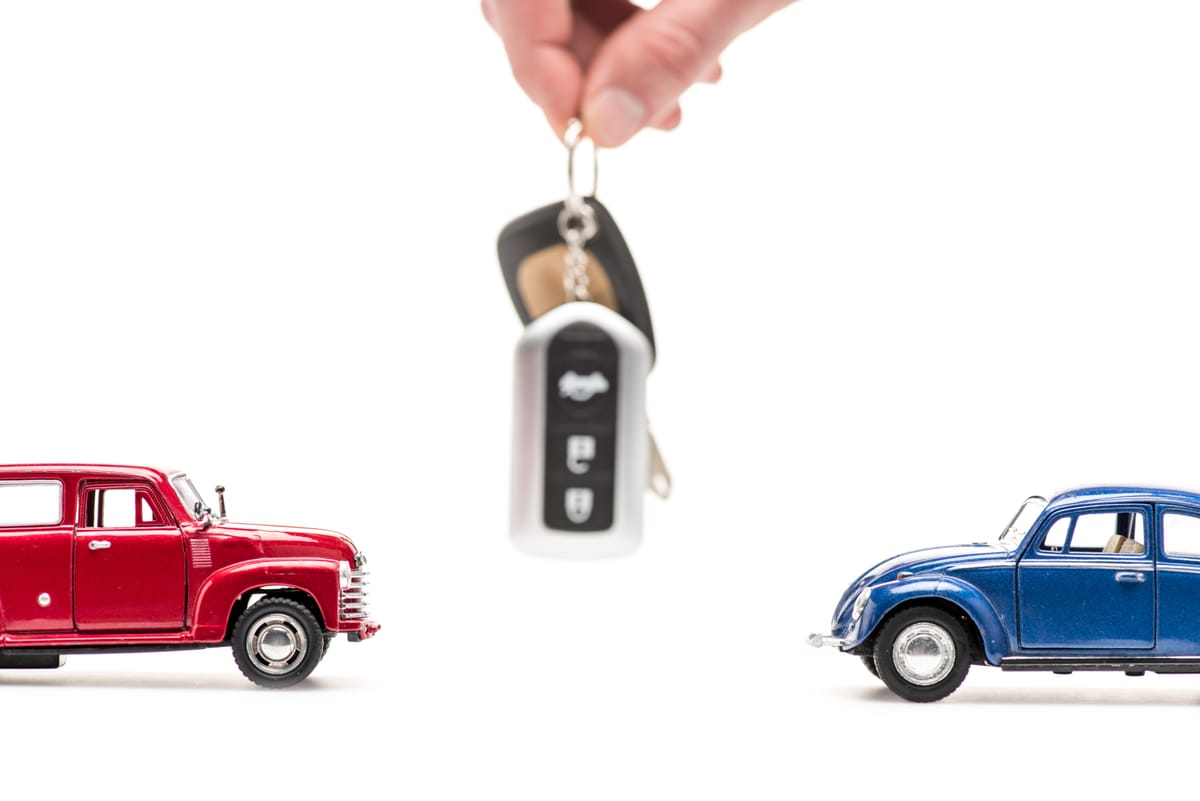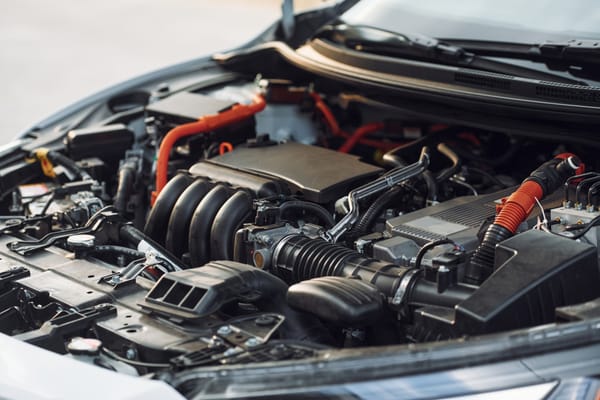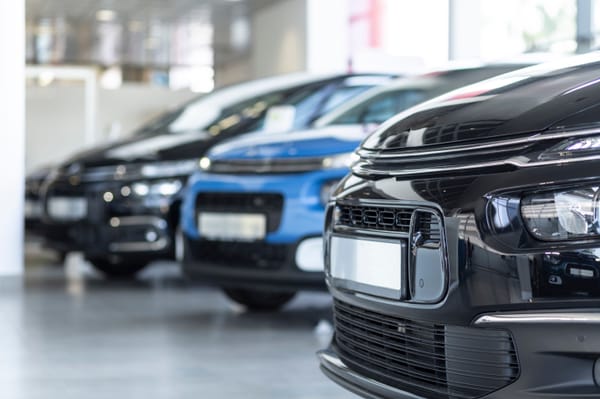How to Double Your Car Trade-in Value and Upgrade Your Ride

You might be leaving money on the table when trading in your car. Car owners often accept lower offers because they don't know their car's true worth. Don’t be one of them.
A few simple steps can change your trade-in game completely. This Peach Cars blog will guide you in getting the best deal possible, whether you plan to trade in now or later.
Before we give you tips on how you can get top dollar for your vehicle, let’s talk about how trade-ins work.
How Trade-In Works
Trading in a car is a straightforward process. It’s the easiest way you can upgrade your ride to a better one without necessarily going through the hassle of selling your old one privately.
At Peach Cars, for instance, trading in your car is a seamless process designed to save you time and effort. Here’s how it works:
- You bring your car to us, where we’ll assess its condition, check its service history, and take it for a test drive. This helps us determine its trade-in value based on current market trends.
- After the assessment, we’ll give you a fair offer for your car. The amount is based on factors like mileage, age, and condition.
- Instead of paying you in cash, the trade-in value of your car is applied toward the cost of your next vehicle. If the new car costs more than your trade-in value, you’ll only need to top up the difference.
- Once everything is finalised, that is, you’re satisfied with the given value and has chosen another vehicle you want to trade with, we’ll finalise the arrangement, have you sign over your car’s ownership to us, and the Peach team processes the documents for your new car and drive away with your new ride—all in one visit.
This process simplifies the selling and buying process and helps you skip the endless process of finding buyers or negotiating prices. It’s quick, efficient, and tailored to make upgrading your vehicle stress-free.
Understanding How a Car’s Trade-in Value is Determined
Car dealers use specific methods to figure out your car's trade-in value. They don't just guess a number. It’s a mix of market data with a detailed analysis of your car's condition. Here are the key factors:
- Market Value - The starting point for any trade-in offer is the market value of your vehicle. How much other similar vehicles are selling for in the Kenyan market at the time you’re selling will give you an idea of how much to expect.
- Local Demand - Factors such as the popularity of different makes and models, the state of the economy, and local demand all come into play. Some models are more popular than others. High-demand vehicles typically command better trade-in prices.
- Vehicle Age and Mileage - Newer cars with lower mileage typically fetch higher offers.
- Condition - The state of your car, both interior and exterior, matters a lot. Scratches, dents, or worn-out interiors can reduce its value.
- Service History - A well-documented maintenance history reassures dealers that the car has been cared for properly.
- Reconditioning Costs - One other thing that dealers will consider is the cost of reconditioning your vehicle if it requires some upgrades or repairs before reselling it.
The easiest way to check how much you’d get for your current model is by using a tool like Peach Insight or other valuation tools online. With this data, you are better placed to negotiate a better price. These tools look at your car's make, model, mileage, condition, and what's selling locally.
Remember, you'll get better trade-in value by knowing what dealers look for and getting your car ready to meet their standards.
Strategic Improvements That Yield Highest Returns
Smart improvements to your vehicle before trade-in can boost its value. A scratch or a dent on your vehicle could cost you anything from Ksh3,000 upwards. You should think about fixing these things before resale.
Focus on changes that give you the best return instead of expensive overhauls that won't pay off. Small cosmetic fixes give high returns while major repairs rarely justify their cost.
Dealerships can handle big repairs much more cheaply than individual car owners. This makes it unwise to spend money on expensive mechanical work before trading in. The small details you fix tell dealers a lot about your vehicle's condition.
That said, make sure you:
- Give your car a fresh look. It makes a difference – professional detailing can add about 15% to 20% more to your resale value.
- Give the exterior a good wash and wax, and make sure the interior is hoovered up, surfaces are clean, and any bad smells are gone.
- Fix these small exterior issues that catch the eye:
- Buff out minor scratches and touch up paint chips
- Fix small dents using paintless dent repair services
- Clean or restore foggy headlights
- Check all exterior lights work properly
- Show you've taken care of your car with these maintenance tasks:
- Top off all fluids (brake, transmission, oil, coolant, windshield washer)
- Replace burnt-out bulbs
- Keep tyres at the right pressure
- Put all your maintenance records in order by date. Good records of regular service, oil changes, and repairs can boost a dealer's confidence in your vehicle. This might get you a better trade-in offer.
- Take out all your personal items, and add new floor mats. This can give worn areas an instant lift.
First impressions count. Dealers often make quick assessments before they do detailed inspections. A clean, well-presented car suggests good maintenance throughout its life and can lead to better offers.
Skip DIY repairs if you're not technically skilled - poor work can lower your car's value. Put your energy into simple improvements that show your vehicle is well-maintained and ready for the road.
Mastering the Trade-in Negotiation Process
Eventually, how much you will get for your car depends on how well you negotiate with the dealership. So, how do you go about the negotiation process?
- Start by negotiating your trade-in separately from your new car purchase. Don’t mix prices up. In fact, you should discuss the trade-in value before any talk about financing or the new car's price.
- Get multiple offers, it’ll help you negotiate better. Visit at least three to four dealerships and get written trade-in quotes. These quotes give you bargaining power since it’s human nature for one to improve their original offer once they know about competing bids. Make sure the dealer's offer matches your research. If you feel pressured to sign documents, you can politely decline. Your ability to walk away is your strongest negotiating tool. Don't hesitate to leave if something feels wrong or the offer seems too low.
During a negotiation, stay calm.. Don’t make emotional decisions. A calm and informed approach helps you stay in control and get the best value for your trade-in.
Now, if financing comes into play, such as topping up a trade-in with a loan, understand how it works before committing. Kenyan buyers typically pay cash for vehicles, but if financing is involved, ensure you’re clear about terms and avoid focusing solely on monthly payments instead of total costs.
Trade-In Your Car with Peach Cars
Smart planning and execution can help you get the most money for your car trade-in. Keeping your vehicle in good condition can increase its value by up to 15% compared to similar models.
Looking to trade in your car? Peach Cars offers great trade-in values with a hassle-free process. Let us know which vehicle you’d like to exchange, and if you're in Nairobi, we’ll guide you every step of the way. Sell or trade in your car with Peach Cars today! Call us and learn how to get started.




